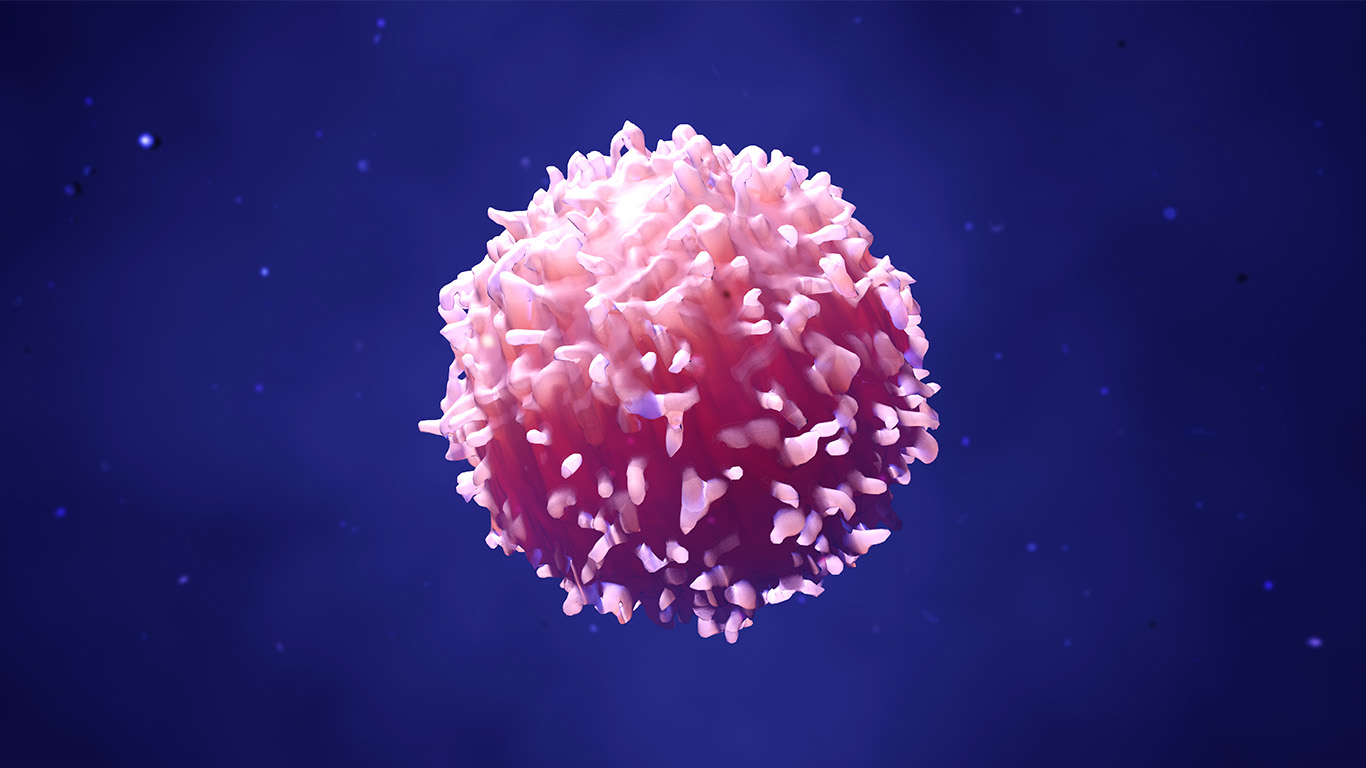

The American Cancer Society defines immunotherapy as “treatment that uses certain parts of a person’s immune system to fight diseases such as cancer.”
In recent decades, immunotherapy has become an important tool for treating some kinds of cancer. It involves either stimulating the patient’s own immune system to work harder or more efficiently, or treating the patient with man-made immune system proteins or other components.
In some cases, immunotherapy strengthens the body’s immune system overall, but it can also focus the immune system to specifically attack cancer cells. It may also be used in conjunction with other types of treatment.
Immunotherapy is usually given intravenously or orally, though it can also be applied topically for early-stage skin cancer or, for bladder cancer, intravesically (injected directly into the bladder via a catheter).
Click here to learn how many kinds of immunotherapy there are.
Surgery, chemotherapy, and radiation treatments are currently more widely used than immunotherapy, but research in the field is ongoing, and various immunotherapies have been approved to treat many kinds of cancer.
24/7 Wall St. drew information for this article from the websites of the American Cancer Society, the National Cancer Institute at the National Institutes of Health, the National Center for Biotechnology Information, the National Cancer Institute, and Cancer Research UK.
Adoptive cell transfer
This treatment typically involves T cells removed from the patient’s tumor. Those that are most active against the cancer are grown in large quantities for several weeks, then injected back into the patient. A specific kind of adoptive cell transfer is called chimeric antigen receptor (CAR) T-cell therapy. Currently used only in clinical trials for patients whose cancer hasn’t responded to, or has returned after, other treatments, this type of immunotherapy uses T cells that are removed from the patient’s blood and genetically altered in the laboratory to add CARs to their surface. When reintroduced into the patient’s body, they can launch a focused attack against the cancer cells.
BCG (Bacillus Calmette-Guérin)
BCG is currently used only to treat bladder cancer, though its use against other types of cancer is being studied. The bacillus is a weakened form of the bacteria that causes tuberculosis. When inserted directly into the bladder, it stimulates an immune system response to fight the cancer cells.
Cytokines
Cytokines, which are proteins that affect the interactions and communications between cells, play an important role in the body’s immune response to cancer. The two kinds of cytokines used most often to treat cancer are interleukins and interferons. Scientists have discovered immune system cells inside certain tumors. Called tumor-infiltrating lymphocytes, or TILs, they can be removed from patients, multiplied through treatment with interleukins, and reinjected as invigorated cancer fighters. Interferon can stop cancer cells from growing or multiplying and stimulates the immune system to target cancer cells.
Immune checkpoint inhibitors
These are drugs that don’t target cancer cells directly, but weaken their ability to withstand immune system attack. The immune system has certain so-called checkpoint proteins that prevent it from attacking healthy cells. Cancer cells sometimes co-opt these proteins to avoid detection. Checkpoint inhibitors in effect strip away the protection the checkpoints were providing, leaving the cancer cells vulnerable to the immune system.
[in-text-ad-2]
Monoclonal antibodies
Monoclonal antibodies are immune system proteins produced in the laboratory. They are designed to attach to certain parts of cancer cells, in some cases making them more “visible” to the immune system and thus more easily attacked. One new approach is to combine parts of two antibodies into what is called a bispecific antibody, so that one part attaches to an immune cell and the other to a cancer cell. This brings the two together and excites an immune response.
Oncolytic viruses
Oncolytic viruses are those that have been manipulated in the laboratory so that they infect — and kill — cancer cells. They can also stimulate the immune system to attack cancer cells.
[in-text-ad]
Vaccines
Developing a vaccine to prevent cancer has been a dream of researchers for decades, but their quest has thus far proven unsuccessful — due to both the complexity of the immune system and the variety of ways cancer cells have developed to elude it. There are, however, several kinds of vaccines that are being studied as means of treatment. The most successful ones thus far are dendritic cell vaccines. To produce these is a difficult and expensive process. Immune cells are removed from the patient’s blood, then exposed to cancer cells or cancer antigens along with various chemicals to turn them into dendritic cells. These are then returned to the patient’s body. Dendritic cells help the immune system recognize cancer cells and make them more vulnerable to the body’s T cells.
Smart Investors Are Quietly Loading Up on These “Dividend Legends” (Sponsored)
If you want your portfolio to pay you cash like clockwork, it’s time to stop blindly following conventional wisdom like relying on Dividend Aristocrats. There’s a better option, and we want to show you. We’re offering a brand-new report on 2 stocks we believe offer the rare combination of a high dividend yield and significant stock appreciation upside. If you’re tired of feeling one step behind in this market, this free report is a must-read for you.
Click here to download your FREE copy of “2 Dividend Legends to Hold Forever” and start improving your portfolio today.
Thank you for reading! Have some feedback for us?
Contact the 24/7 Wall St. editorial team.

